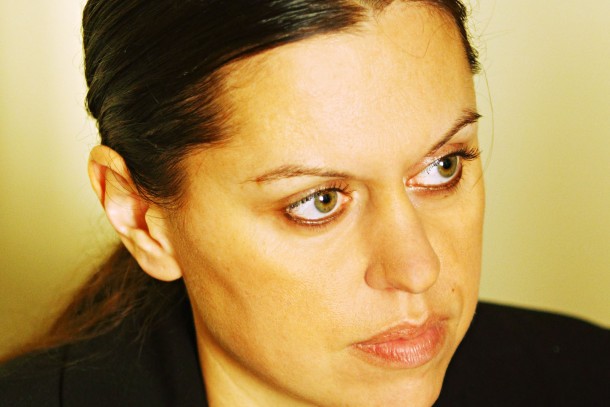06.09.2011 | Insight

Ms Julia Shevchuk is the Chief Investment Adviser and Office Manager at NEFCO’s newly established offices on Velyka Vasylkivska Street in Kyiv, Ukraine, which she shares with three other colleagues.
Julia holds a Masters degree in economics, and before joining NEFCO she worked as a consultant and also has considerable experience from the wastewater treatment sector. We met Miss Shevchuk in Kyiv for an interview.
What does a normal day look like here at the office in Kyiv?
As you have noticed, the phones are ringing all the time, and we spent a great deal of time answering questions about NEFCO’s funding activities. Our clients and local business leaders are quite keen to find out the terms and conditions that have to be met before submitting their loan applications. And our staff members regularly participate in different business conferences and seminars where they market NEFCO investment services to business enterprises and other stakeholders. Currently NEFCO has a hundred investment projects going on in Ukraine and that, naturally, demands time and energy.
What is the most common sales argument that you use when selling NEFCO services to Ukrainian clients?
I try to emphasise the fact that NEFCO is a corporation owned by the Nordic governments because this implies that we are a stable and trustworthy business partner. I also point out the efficient administration we have in place to handle loan applications. Less bureaucracy means more efficiency.
Which industrial sector do you consider to be the most promising one in terms of business opportunities for NEFCO?
I think that all projects related to energy saving and energy efficiency have a huge potential in Ukraine, and most of the projects financed by NEFCO in this country are in that sector. Saving energy means saving money and, of course, money talks both in the municipal and corporate sectors.
What about renewable energy?
NEFCO has already financed a number of projects that utilise renewable energy in Ukraine particularly in the agricultural sector where pig manure is being used to produce biogas. Another good example is the use of rapeseed to produce biodiesel. We are also quite keen to finance wind and small scale hydropower projects as well as biomass schemes. Despite this, challenges still remain until we have sufficient feed-in tariffs to stimulate investments in, for instance, wind power.
You have recently carried out a marketing campaign in Ukraine. What was it about?
We approached hundreds of companies, mainly in the food and agricultural sectors, in order to market our Facility for Cleaner Production. The direct mail campaign has now been finalised and the next stage is to do the follow-up. We have already received a number of inquiries related to this campaign and, thanks to the fixed interest rate for these particular loans, it has been fairly easy to get new clients.
To what extent can you assist the clients in measuring the energy consumption before and after the project?
From time to time we do offer them concrete assistance to ensure that the expected energy savings are realistic and that we get the projected environmental results from the project. As a small financial institution, there are of course limits to how far we can stretch ourselves in providing concrete assistance on the ground, but we do our best. The new investment programme DemoUkraina, which was established by the Swedish government for financing district heating systems, will enable us to also offer technical assistance to our clients in this sector and this will undoubtedly make it easier to market these kinds of loans in the future.